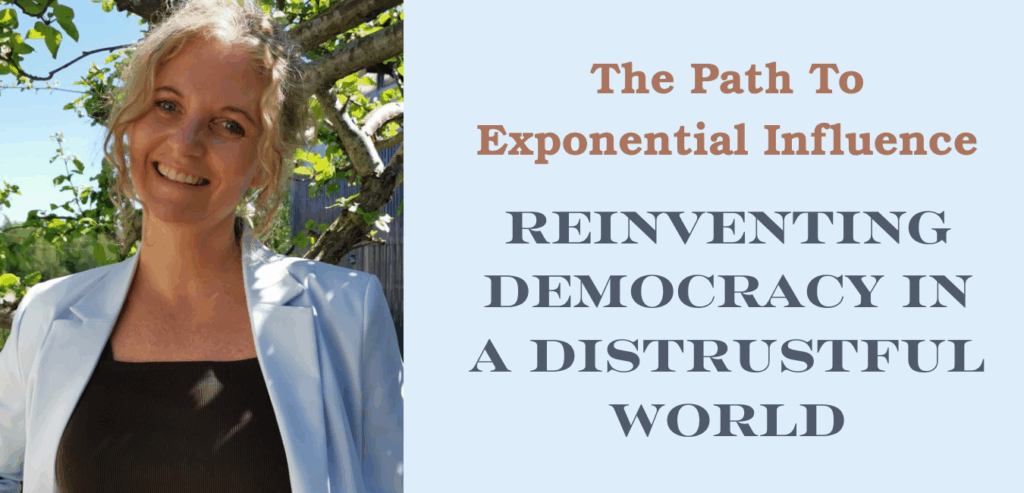The political landscape is often dominated by established parties and traditional power structures. The question emerges: how can genuine influence be built in today’s rapidly evolving democracy? Norway prepares for its parliamentary elections this autumn. And I find myself reflecting on what true political impact really means in 2025.
Beyond The Familiar Players
The familiar political spectrum in Norway stretches from Fremskrittspartiet on the right to Rødt on the left. Numerous parties occupy the middle ground. Yet beneath this established structure of nine parties, (even) smaller parties struggle to reach the electoral threshold.
One new party that’s captured my attention is Generasjonspartiet. While their name might not immediately reveal their mission, their commitment to direct democracy represents a fascinating innovation in political engagement. Led by the capable Gyda Oddekalv, they’ve developed an app enabling citizens to vote directly on various issues, making democratic participation more accessible than ever before.
Democracy at a Crossroads
Our democratic systems are over 3,000 years old. If political parties fail to deliver meaningful results, transformation becomes inevitable. The question isn’t whether democracy will change, but how.
Direct democracy through technological platforms represents one potential evolution, similar to Switzerland’s model but enhanced through digital innovation. Yet alternatives exist, as Belgian historian David Van Reybrouck argues in his compelling work “Against Elections: The Case for Democracy.” Van Reybrouck’s proposal for a lottery-based system harkens back to ancient Athens, where key positions were distributed through random selection to prevent power concentration.
The Power of Presence in Democratic Processes
Van Reybrouck emphasizes that democracy fundamentally requires presence. When people gather physically around a table, their discourse transforms. The digital realm, while offering accessibility, often lacks the transformative quality of in-person deliberation where thoughtful compromise and meaningful exchange flourish.
This raises a critical question for political leaders: Have we created systems where citizens have the right to vote but not the right to be genuinely heard?
Rebuilding Trust Through Innovative Leadership
Political parties now rank among the least trusted public institutions in Western democracies. This trust deficit represents both a challenge and an opportunity for visionary leaders willing to catalyze transformative change.
For those seeking to build genuine influence, the path forward requires transcending traditional power structures while maintaining democratic legitimacy. It demands leaders who can balance intellectual depth with emotional intelligence, who understand that authority comes not from position but from connection and authentic engagement.
Amplifying Your Political Impact
If you’re a political leader navigating this complex landscape, remember that democracy is far more resilient than we often recognize—provided we allow it to evolve. Your effectiveness depends not on clinging to established systems but on pioneering innovative approaches that reconnect citizens with governance.
True political influence in today’s world comes from having the courage to reimagine democratic processes while staying grounded in core democratic values. It requires the wisdom to recognize when traditional methods fall short and the boldness to implement visionary alternatives.
The most impactful political leaders I’ve worked with understand this fundamental truth: building influence isn’t about accumulating power within existing structures—it’s about creating new pathways for citizen engagement that transcend institutional limitations.
Your Opportunity to Transform
As a political leader, you’ve earned the privilege to shape society’s future. This position comes with both tremendous responsibility and unprecedented opportunity. By embracing innovative approaches to citizen engagement, you can:
- Catalyze paradigm-shifting changes in how democracy functions
- Amplify citizen voices that have traditionally been marginalized
- Pioneer governance models that restore public trust
- Transform political discourse from divisive to constructive
Democracy’s strength lies in its capacity for reinvention. By trusting your own strength as a leader and the collective wisdom of engaged citizens, you can build a political influence that extends far beyond electoral victories—creating lasting impact that elevates governance to meet the complex challenges of our time.
The most powerful political leaders don’t just win elections; they transform how democracy itself functions. The question is: will you be among them?


